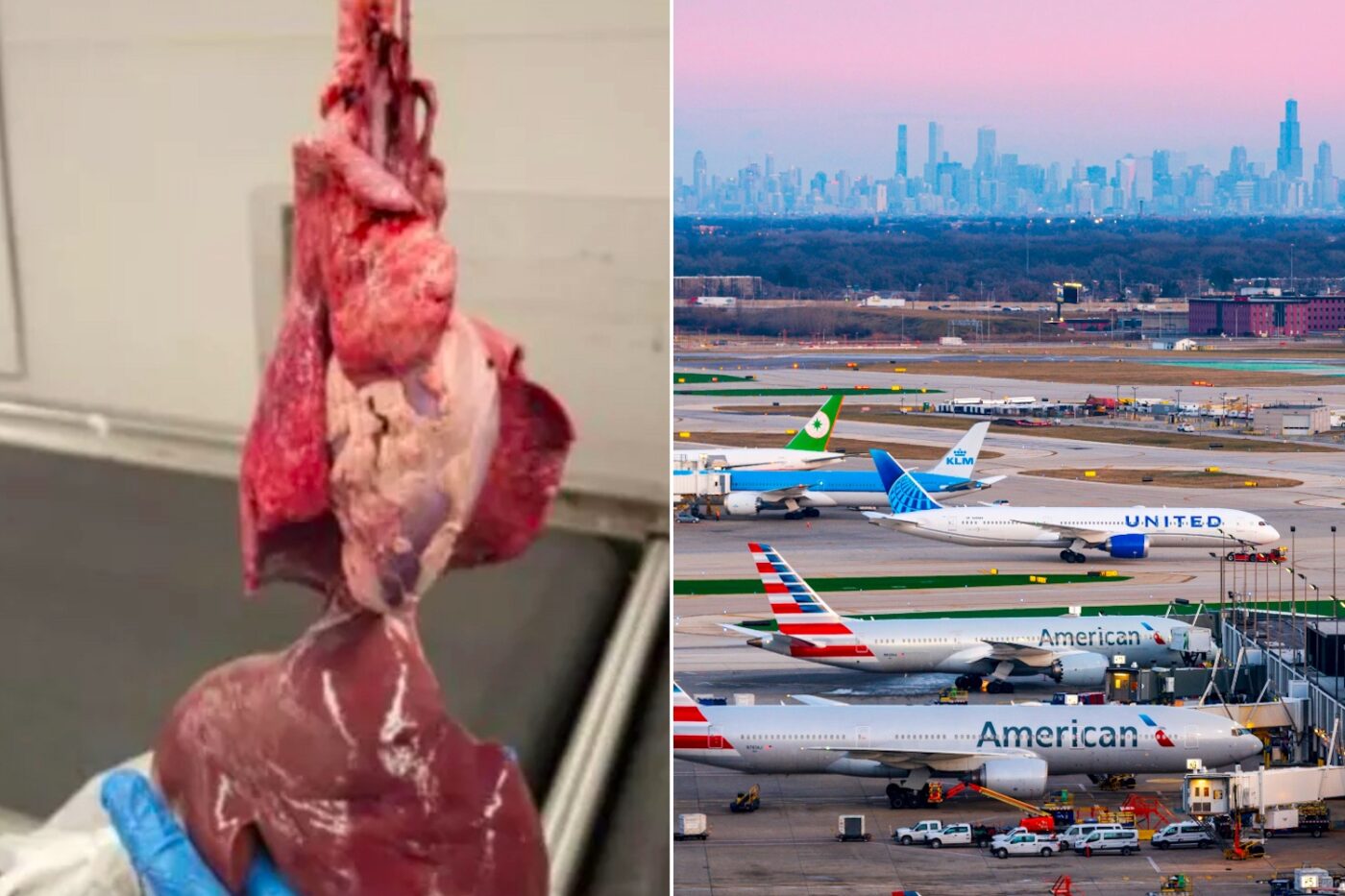A couple returning from the Democratic Republic of Congo were apprehended at Chicago O’Hare International Airport after attempting to smuggle raw goat viscera in their luggage.
We’ve covered plenty of wild travel stories in our time — from the man who urinated all over his business class cabin to the viral mile-high Brits who got themselves banned from EasyJet — but none have been as gory as this…
Customs officials stopped an African couple travelling to America are the trachea, heart, lungs, liver, kidneys, and entire digestive system of a goat was found in their luggage. Their bags also contained a package of as yet unidentified meat and “garden eggs”, also known as African eggplants.
WATCH: Flight Attendant Survives 30,000 Feet Fall From Plane Without Parachute.
As reported by Newsweek, officials were quick to highlight the manifold risks associated with this kind of cargo. LaFonda D. Sutton-Burke — U.S. CBP director of field operations at the Chicago field office — said this:
“There are real dangers these items can have if they are introduced into the U.S. economy. All passengers, whether entering or returning to the U.S., must be truthful and declare all items they are bringing. If one prohibited item enters the U.S., it could have dangerous ecological or economical results.”
LaFonda D. Sutton-Burke
Agriculture specialists immediately seized and destroyed the remains to prevent potential disease transmission as animal remains — if not handled with proper care and control — can carry pathogens between nations and risk the spread of infection.
The Democratic Republic of Congo has faced a number of issues related to such diseases including ovine rinderpest, peste des petits ruminants, monkeypox, and even Ebola, which can infect both animals and humans alike.
Michael Pfeiffer, the area port director in Chicago, reiterated the importance of protecting American borders:
“Items like these can harbor pests and diseases; if introduced into our agriculture systems or natural resources, [they] could cause significant damage to our food supply or native species.”
Michael Pfeiffer
The incident follows hot on the heels of a similar issue only two weeks ago when a woman travelling from Kenya to Minneapolis was found with — wait for it — giraffe feces in her luggage. Apparently, she had hoped to use these for jewellery making, but CBP quickly destroyed the material to prevent the spread of disease.
Somewhat unsurprisingly, giraffe feces can carry harmful bacteria like E.coli, shigella, or staphylococcus, along with nematode parasites that can pose health risks to humans and animals.
David Verhoeven — an assistant professor of veterinary microbiology and preventive medicine at Iowa State University — pointed to the potential dangers:
“There are some coronaviruses that can be spread from infected feces and go on to infect cattle as well. A significant virus could be foot and mouth disease virus (apthovirus) which could spread to cows, sheep, and pigs and be very bad in the U.S. Giraffes can also carry rotaviruses that can get into cows.”
David Verhoeven
It may seem like common sense to most, but clearly it’s a message that bears repeating: when you’re packing for your next holiday, leave the blood and guts at home.
